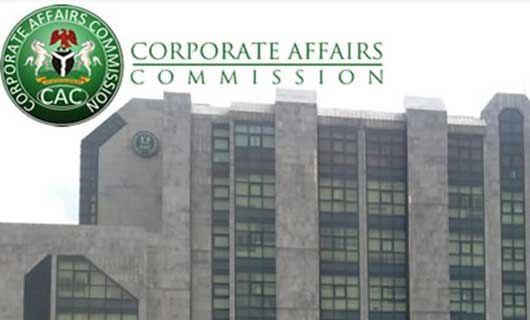Nigeria’s Business Registration Struggles: Entrepreneurs Face Bureaucratic Hurdles
 Nigeria’s Corporate Affairs Commission (CAC) has come under scrutiny for the ongoing challenges faced by entrepreneurs when registering their businesses. While an online registration system was introduced in 2015 to simplify the process, many business owners continue to encounter delays, hidden fees, and inefficiencies in the system.
Nigeria’s Corporate Affairs Commission (CAC) has come under scrutiny for the ongoing challenges faced by entrepreneurs when registering their businesses. While an online registration system was introduced in 2015 to simplify the process, many business owners continue to encounter delays, hidden fees, and inefficiencies in the system.
Chinedu Nwachukwu, a graphic designer who recently sought to formalize his business, shared his frustrations with the cumbersome registration process. “Though the official registration fee is as low as N10,000, by the time you add the cost of processing, hiring a lawyer, and other expenses, it goes up to N20,000 or N30,000,” he said. “At some point, frustration sets in, and you end up seeking legal help, even though the process is supposed to be simple and self-service.”
Christopher Thomas, the founder of Skylight Property and Durable Homes in Abuja, faced similar challenges. Despite paying all necessary fees online, he encountered months of delays and constant queries from the CAC. “Even after submitting all required documents and paying the necessary fees, I kept receiving queries,” Thomas explained. “It’s disheartening. I can’t even begin operations because the business isn’t officially recognized.”
Beyond delays, hidden costs and system inefficiencies are pushing many entrepreneurs to abandon the formal registration process. Odoh Alexander, a media services provider, highlighted the impact of network glitches and other obstacles, which often force individuals to rely on agents who charge much higher rates than the official fees.
In a bid to regulate the informal economy, the CAC mandated the formal registration of all businesses, including the more than 1.9 million Point of Sale (PoS) terminals operating in Nigeria. However, operators found it difficult to meet the registration deadline, citing the slow and complicated process.
Experts have called for reforms to streamline the registration process and make it more accessible. Paul Alaje, Chief Economist at SPM Professionals, emphasized the need for better integration between the CAC and other government agencies. “While Nigeria has made significant strides, there’s still a long way to go,” Alaje stated. “When you compare our system to those of other countries, it’s evident that we are still behind.”
Policy analyst Chike Eze recommended automating the registration workflow to improve efficiency and transparency. Fintech companies like Mintyn have also advocated for a more user-friendly process, especially for individuals in rural areas who may lack the digital literacy required to navigate the current system.
Despite the challenges, there is hope for improvement. Nigeria’s position on the World Bank’s Ease of Doing Business index has risen from 169th to 131st in recent years, largely due to the introduction of the online registration platform. However, critics argue that the pace of improvement remains slow, particularly in comparison to the broader efforts aimed at enhancing business operations in the country.
The CAC, for its part, defends its services, claiming they are transparent and user-friendly. Spokesperson Dominic Inyang attributed many of the complaints to applicants failing to follow the registration instructions on the commission’s website. He also clarified that the CAC does not handle tax collection, which is managed by the Federal Inland Revenue Service (FIRS).













